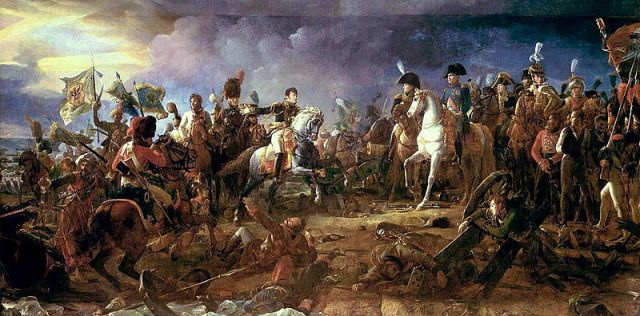 When I first heard of this expression, I thought it was some general paternalistic phrase. But when I found out that it also came from Rudyard Kipling’s poem encouraging the colonization of the Philippines by the United States, it kinda made my blood boil. I’m only human after all.
When I first heard of this expression, I thought it was some general paternalistic phrase. But when I found out that it also came from Rudyard Kipling’s poem encouraging the colonization of the Philippines by the United States, it kinda made my blood boil. I’m only human after all.
Here’s how it goes:
Original title : “The White Man’s Burden: The United States and The Philippine Islands”
Take up the White Man’s burden, Send forth the best ye breed
Go bind your sons to exile, to serve your captives’ need;
To wait in heavy harness, On fluttered folk and wild–
Your new-caught, sullen peoples, Half-devil and half-child.Take up the White Man’s burden, In patience to abide,
To veil the threat of terror And check the show of pride;
By open speech and simple, An hundred times made plain
To seek another’s profit, And work another’s gain.Take up the White Man’s burden, The savage wars of peace–
Fill full the mouth of Famine And bid the sickness cease;
And when your goal is nearest The end for others sought,
Watch sloth and heathen Folly Bring all your hopes to nought.Take up the White Man’s burden, No tawdry rule of kings,
But toil of serf and sweeper, The tale of common things.
The ports ye shall not enter, The roads ye shall not tread,
Go mark them with your living, And mark them with your dead.Take up the White Man’s burden And reap his old reward:
The blame of those ye better, The hate of those ye guard–
The cry of hosts ye humour (Ah, slowly!) toward the light:–
“Why brought he us from bondage, Our loved Egyptian night?”Take up the White Man’s burden, Ye dare not stoop to less–
Nor call too loud on Freedom To cloke your weariness;
By all ye cry or whisper, By all ye leave or do,
The silent, sullen peoples Shall weigh your gods and you.Take up the White Man’s burden, Have done with childish days–
The lightly proferred laurel, The easy, ungrudged praise.
Comes now, to search your manhood, through all the thankless years
Cold, edged with dear-bought wisdom, The judgment of your peers!
Even if there were some colonizers that did help in some way, the colonized world is still plagued by stymieing attitudes and social issues brought on by colonial oppression.
How do we get rid of those?
As Scottish philosopher Adam Smith puts it:
The savage injustice of the Europeans rendered an event, which ought to have been beneficial to all, ruinous and destructive to several of those unfortunate countries.
That being said, the first way we can help ourselves is to acknowledge that investment is essential.
The population, especially that of the lower classes, has multiplied to such an extent that it is no longer sufficient for nationally-owned industries to support them.
It is up to us to showcase our strengths primarily to draw investors to the country to provide substantial employment. Doesn’t having so many disadvantaged people lead to even bigger problems?
When that’s being taken care of, we can then proceed to the more complex dilemmas because lesser people would be struggling.
 Photo Credit: Mike Gonzalez (TheCoffee)
Photo Credit: Mike Gonzalez (TheCoffee)
At the same time, the educational system must evolve in order to transcend obstacles that our world is currently facing. Educational policy should encourage self-learning, especially of works from Classical Greece & Rome and the Enlightenment.
These are for everyone regardless of race, as this knowledge cannot be acquired by belonging to a particular race.
As I commented before about Kipling’s poem — maybe there were colonizers that improved the condition of some native peoples. But it didn’t acknowledge the European peoples’ own turmoil. As if Europeans didn’t have countless wars and bloodshed over religion, land, ethnicity, etc. — Gimme a break.
It had to take an enlightened, non-religious soldier from the Mediterranean island of Corsica to conquer almost all of Europe to abolish feudalism, and spread the reforms of the French Revolution.
So was it ever really a case of one race uplifting others?
No. It has always been the case of those who continually seek the light of knowledge to help others do the same.
 Photo Credit: L’Histoire par l’image [1], digital version produced by Agence photographique de la Réunion des musées nationaux [2]
Photo Credit: L’Histoire par l’image [1], digital version produced by Agence photographique de la Réunion des musées nationaux [2]
Source:
http://en.wikipedia.org/wiki/The_White_Man%27s_Burden
https://www.marxists.org/reference/archive/smith-adam/works/wealth-of-nations/



George Orwell called Rudyard Kipling “prophet of British imperialism”. For more thoughts about him-http://theorwellprize.co.uk/george-orwell/by-orwell/essays-and-other-works/rudyard-kipling-1936/
the White man’s mentality is still burdened with arrogance and ignorance. https://auronation.wordpress.com